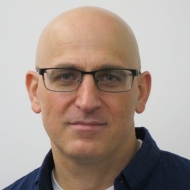Danny Fox of MIT will present “Exhaustivity as cell identification” in the Linguistics Colloquium series organized by the GLSA. The talk is in ILC N400 at 3:30 – all are welcome! The abstract is below.

Abstract:
Under the Grammatical Theory of Scalar Implicatures (GT of SIs), SIs are logical entailments of ambiguous sentences – entailments of grammatical representations containing a (covert) focus sensitive operator, exh. Conceptual and empirical arguments have been presented in favor of GT. GT is consistent with conversational maxims that can be defended on a-priori grounds. By contrast, the pragmatic alternatives require the rejection of what are arguably basic truisms. In additions, GT is supported on various empirical grounds, among them considerations of modularity/blindness, the interaction between ignorance inferences and SIs, embedded implicatures, and various other areas of grammar in which Exhaustification plays a role (for a review and relevant references, see Chierchia, Fox and Spector 2012, Fox 2014, and Chierchia 2017).
However, the definitions of exh provided in most versions of GT have been suspiciously close to what is derived by Neo-Gricean mechanisms. I will argue that this conceptual difficulty might be eliminated when we look at the presuppositions of questions. Building on and modifying work of Dayal (1996) I will argue that exh is involved in the statement of these presuppositions. Specifically: a question, Q, presupposes that every cell in the partition it induces can be identified by a member of Q, via Exhaustification (?C?Partition(Q)[?p?Q[Exh(Q,p)=C]]), and conversely, that every member of Q identifies a cell in the partition (?p?Q[?C?Partition(Q)[Exh(Q,p)=C]]).
Drawing on recent work with Moshe Bar-Lev, I will provide an alternative definition of exh that is quite distinct from operators that reflect Neo-Gricean mechanisms. I will also argue that this definition can be understood based on considerations that come from the role of exh in question semantics (its role in cell identification). The empirical arguments will be based primarily on the distribution of negative islands and “mention some” readings.